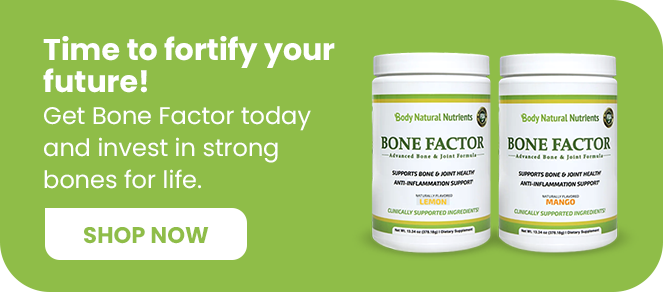I. Introduction
The Importance of Bone Health
Maintaining bone health is essential for mobility, preventing fractures, and overall well-being. Bones provide structure, protect organs, anchor muscles, and store calcium. This is important for all ages, not just the elderly. According to the National Osteoporosis Foundation, 10 million Americans have osteoporosis, and 44 million have low bone density, increasing their risk of fractures.
Traveling can disrupt routines, diet, and activity levels, impacting bone health. Long periods of sitting during flights or road trips can cause stiffness and decrease bone density. Poor nutrition and lack of exercise can weaken bones, raising the risk of fractures and other issues. Therefore, it’s crucial to adopt strategies that maintain strong bones while traveling.
Overview of the Blog Post
This article provides essential tips to boost your bone health while traveling, covering pre-travel preparation, dietary advice, exercise tips, and managing bone health on the road. Whether on a business trip or vacation, these tips will help you stay active and healthy, ensuring your bones remain strong.
Importance of Maintaining Bone Health During Travel
Travel disrupts daily routines, making it easy to neglect healthy habits. Prolonged inactivity from sitting on planes or in cars can weaken bones. Unfamiliar foods might lack necessary nutrients like calcium and vitamin D. Physical strain from carrying luggage or exploring new places can lead to injuries if bone health is compromised. Following these essential tips to boost your bone health while traveling can mitigate these risks and ensure a healthier journey.
II. Understanding Bone Health
What is Bone Health?
Bone health refers to the strength and density of bones, which are critical for maintaining mobility and supporting the body. Healthy bones are dense and resilient, able to withstand the physical stresses of daily life. They play several roles, including:
- Structural Support: Bones form the framework of the body, supporting muscles and protecting vital organs.
- Mineral Storage: Bones store minerals like calcium and phosphorus, which are released into the bloodstream when needed.
- Blood Cell Production: Bone marrow produces red and white blood cells, essential for carrying oxygen and fighting infections.
Bones continuously remodel themselves, with new bone tissue forming while old tissue is broken down. This process, known as bone remodeling, requires adequate intake of nutrients, regular physical activity, and a healthy lifestyle.
Factors Affecting Bone Health
- Age: Bone density peaks in early adulthood and decreases with age.
- Diet: Lack of calcium, vitamin D, and other nutrients can weaken bones.
- Physical Activity: Weight-bearing and strength-training exercises increase bone density.
- Hormonal Changes: Hormones like estrogen and testosterone are crucial for bone maintenance.
- Lifestyle Choices: Smoking, excessive alcohol consumption, and a sedentary lifestyle negatively affect bone health.
Travel can exacerbate these factors due to changes in routine and environment. Understanding their impact is key to maintaining strong bones while traveling.
III. Pre-Travel Preparation
Health Checkup
Before traveling, schedule a health checkup:
- Bone Density Test: If at risk for osteoporosis, a bone density test provides insights into your bone health.
- Calcium and Vitamin D Levels: Ensure levels are adequate to support bone strength.
- Medications: Review any medications that could impact bone health or interact with new environments or activities.
Packing Essentials for Bone Health
Supplements
- Calcium: Essential for bone density (1,000 mg daily; 1,200 mg for women over 50 and men over 70).
- Vitamin D: Aids calcium absorption, especially crucial if sun exposure is limited.
Portable Exercise Equipment
- Resistance Bands: Lightweight and excellent for strength training.
- Travel-Friendly Weights: For bone-strengthening exercises.
Proper Footwear
- Supportive Shoes: Good support and cushioning for walking and activities.
- Orthotic Insoles: Additional support for specific foot conditions.
Medication and Medical Information
- Prescriptions: Bring medications in original packaging with a copy of the prescription.
- Medical Information: List of medical conditions, medications, and emergency contacts.
IV. Dietary Tips for Bone Health While Traveling
Nutrient-Rich Foods
Maintaining a balanced diet while traveling can be challenging but is essential for bone health. Focus on incorporating the following nutrient-rich foods into your meals:
Calcium-Rich Foods
- Dairy: Milk, cheese, yogurt.
- Leafy Greens: Kale, spinach, broccoli.
- Fortified Foods: Cereals, juices, plant-based milks.
Vitamin D Sources
- Fatty Fish: Salmon, mackerel, sardines.
- Fortified Cereals: Many breakfast cereals.
- Sun Exposure: Helps produce vitamin D.
Protein-Rich Foods
- Lean Meats: Chicken, turkey, lean beef.
- Beans and Legumes: Black beans, chickpeas, lentils.
- Nuts and Seeds: Almonds, walnuts, chia seeds.
Magnesium and Potassium-Rich Foods
- Bananas: High in potassium.
- Avocados: Provide magnesium and potassium.
- Nuts: Almonds and cashews.
Eating Out: Making Healthy Choices
- Choose Calcium-Rich Options: Dishes with dairy or leafy greens.
- Avoid Processed Foods: High in sodium, which can leach calcium from bones.
- Ask for Modifications: Request healthier cooking methods or ingredient substitutions.
Staying Hydrated
Hydration is crucial for overall and bone health. Aim for at least 8 cups (64 ounces) of water daily. Carry a reusable water bottle and avoid excessive caffeine and alcohol, which can dehydrate you.
V. Exercise Tips for Maintaining Bone Health

Maintaining an exercise routine while traveling is crucial for bone health. Physical activity stimulates bone formation, maintains bone density, and reduces fracture risk. Here’s how to incorporate exercise into your travel plans:
Incorporating Physical Activity into Your Travel Routine
Hotel Room Workouts
- Bodyweight Exercises: Push-ups, squats, lunges, and planks require no equipment.
- Resistance Band Workouts: Lightweight and versatile for strength training exercises like bicep curls and leg extensions.
- Yoga or Pilates: Improve flexibility and strength. Use apps or online videos for guidance.
Walking and Exploring

- Weight-Bearing Exercise: Walking strengthens bones, especially in the legs and hips.
- Discovering Local Culture: Walking tours provide physical activity and cultural experiences.
Using Hotel Facilities
- Gyms: Utilize fitness centers for cardio and strength training.
- Pools: Swimming is an excellent low-impact exercise.
Local Fitness Classes
- Yoga and Pilates: Maintain flexibility and strength.
- Dance Classes: Engaging weight-bearing exercises.
- Outdoor Activities: Hiking, biking, or kayaking.
Bone-Strengthening Exercises
- Weight-Bearing Exercises: Walking, jogging, dancing, and climbing stairs help maintain bone density.
- Strength Training: Lifting weights or using resistance bands builds muscle mass and supports bones. Focus on major muscle groups and aim for twice a week.
- High-Impact Activities: Jumping rope, running, and playing sports increase bone density. Consult a healthcare provider if you have bone-related conditions.
| Exercise Type | Example Activities | Benefits |
|---|---|---|
| Weight-Bearing | Walking, jogging, dancing | Increases bone density |
| Strength Training | Weight lifting, resistance bands | Builds muscle mass, supports bones |
| High-Impact | Jumping rope, running | Increases bone density, stimulates bone growth |
Incorporating these exercises into your travel routine ensures you maintain strong, healthy bones.
VI. Travel-Specific Tips for Bone Health
Staying Active During Long Flights or Drives
Stretching and Moving Around
- Stretching: Stretch your arms, legs, and back to relieve tension.
- Walking: Get up and walk around every hour to maintain circulation.
Exercises for Long Travel Periods
- Ankle Circles: Rotate ankles to improve circulation.
- Seated Leg Lifts: Lift legs while seated to engage muscles.
- Toe Taps: Tap toes to keep feet active.
| Exercise | Description | Repetitions |
|---|---|---|
| Ankle Circles | Rotate each ankle in circles | 10 each direction |
| Leg Lifts | Lift each leg while seated | 10 per leg |
| Toe Taps | Tap toes on the floor | 20 taps |
Managing Jet Lag and Sleep for Bone Health
- Adjust to the Local Time Zone: Quickly adapt to local time to minimize jet lag.
- Maintain a Sleep Routine: Go to bed and wake up at the same time each day.
- Create a Sleep-Conducive Environment: Use earplugs, an eye mask, or a white noise machine.
- Avoid Stimulants: Limit caffeine and alcohol near bedtime.
Avoiding Travel Injuries
- Be Cautious in Unfamiliar Environments: Watch for hazards like uneven sidewalks.
- Use Luggage Wisely: Use wheeled luggage to avoid carrying heavy loads.
- Warm Up Before Physical Activities: Stretch to prevent strains and sprains.
By staying proactive and incorporating these travel-specific tips, you can maintain your bone health and enjoy your travels fully.
VII. Managing Stress and Its Impact on Bone Health
Understanding Stress and Bone Health
Stress can negatively impact bone health by increasing cortisol levels, which can lead to bone loss and reduced bone density. Stress also often leads to poor dietary choices and a lack of physical activity, further compromising bone health.
Stress-Reduction Techniques While Traveling
Mindfulness and Meditation
- Deep Breathing: Take slow, deep breaths to calm your mind and body.
- Body Scan: Close your eyes and slowly scan your body from head to toe, releasing tension.
- Guided Meditation: Use apps or online resources for guided sessions.
Relaxation Techniques
- Progressive Muscle Relaxation: Tense and relax each muscle group from your toes to your head.
- Visualization: Imagine a peaceful place to help you relax.
- Gentle Yoga: Practice poses that promote relaxation and flexibility, like child’s pose and seated forward bend.
Importance of Leisure Time
- Schedule Downtime: Plan leisure time in your itinerary to unwind and recharge.
- Engage in Enjoyable Activities: Participate in activities you enjoy, such as exploring new areas, visiting museums, or trying new hobbies.
By incorporating these stress-reduction techniques, you can help maintain your bone health and overall well-being while traveling.
VIII. Dealing with Bone Health Issues While Traveling
Traveling can present challenges for those with bone health issues. Here’s how to manage potential problems:
Recognizing Symptoms of Bone-Related Issues
- Pain and Discomfort: Joint pain, back pain, or bone pain can indicate issues.
- Swelling and Stiffness: Signs of inflammation or injury.
- Changes in Posture: A stooped or hunched back can indicate osteoporosis or other conditions.
Managing Acute Bone Health Problems on the Road
First Aid for Bone-Related Injuries
- Rest: Avoid putting weight on the injured area.
- Ice: Apply ice to reduce swelling and pain.
- Compression: Use an elastic bandage to wrap the injured area.
- Elevation: Elevate the injured area above heart level to reduce swelling.
Seeking Medical Attention Abroad
- Know Your Insurance Coverage: Understand your travel insurance for medical emergencies.
- Find Local Healthcare Providers: Research local healthcare options before your trip.
- Communicate Clearly: Communicate your symptoms and medical history to healthcare providers.
Continuing Bone Health Treatments While Traveling
- Bring Enough Medication: Pack enough medication for your trip plus a few extra days.
- Follow Your Treatment Plan: Adhere to your treatment plan, including exercises or therapies.
- Schedule Follow-Up Appointments: Plan follow-up appointments with your healthcare provider before and after your trip.
By recognizing symptoms and taking appropriate action, you can manage bone health issues effectively while traveling.
Conclusion
Maintaining bone health while traveling ensures you can fully enjoy your experiences without compromising your well-being. By following these essential tips, you can stay active, eat well, manage stress, and keep your bones strong and healthy.
Key Takeaways:
- Pre-Travel Preparation: Schedule a health checkup, pack bone health essentials, and plan for physical activities.
- Dietary Tips: Focus on calcium-rich foods, make healthy choices when eating out, and stay hydrated.
- Exercise Tips: Incorporate weight-bearing and strength-training exercises, and stay active during long travel periods.
- Travel-Specific Tips: Manage jet lag, stay active during flights or drives, and avoid injuries.
- Stress Management: Use mindfulness and relaxation techniques to reduce stress and support bone health.
- Managing Bone Health Issues: Recognize symptoms, seek medical attention when needed, and continue your treatment plan while traveling.
By adopting these strategies, you can enjoy your travels confidently, knowing you’re taking proactive steps to maintain your bone health. Healthy bones are the foundation of a healthy, active life, and with the right approach, you can keep them strong and resilient wherever you go.
FAQs About Bone Health While Traveling
Can I maintain my exercise routine while traveling?
Yes, plan for bodyweight exercises, use resistance bands, and explore local activities like walking or hiking.
What foods should I eat to support bone health while traveling?
Focus on nutrient-rich foods such as dairy, leafy greens, nuts, seeds, and fish.
How can I manage stress to support bone health during travel?
Practice mindfulness and relaxation techniques, get enough rest, and incorporate leisure activities.
What should I do if I experience a bone-related injury while traveling?
Seek medical attention promptly. Follow first aid steps: rest, apply ice, and compress the injured area. Know your travel insurance and local healthcare providers.
Can I continue my bone health treatment plan while traveling?
Yes, bring enough medication, follow your treatment plan, and schedule follow-up appointments before and after your trip.
How can I avoid injuries while traveling?
Be cautious in unfamiliar environments, use proper lifting techniques for luggage, and warm up before physical activities.
By addressing these common questions, you can better prepare for your travels and ensure optimal bone health throughout your journey.



